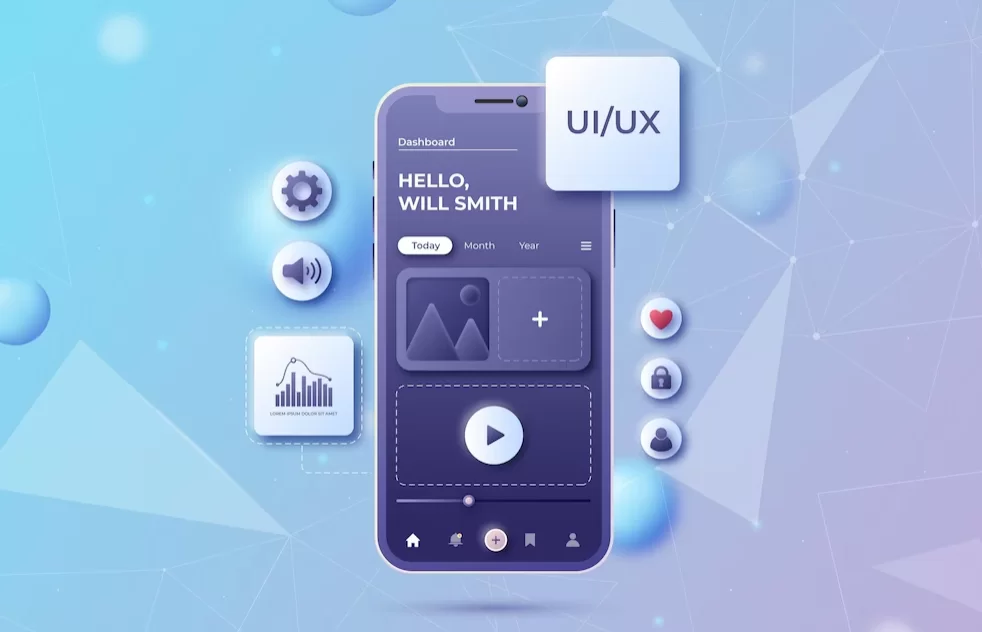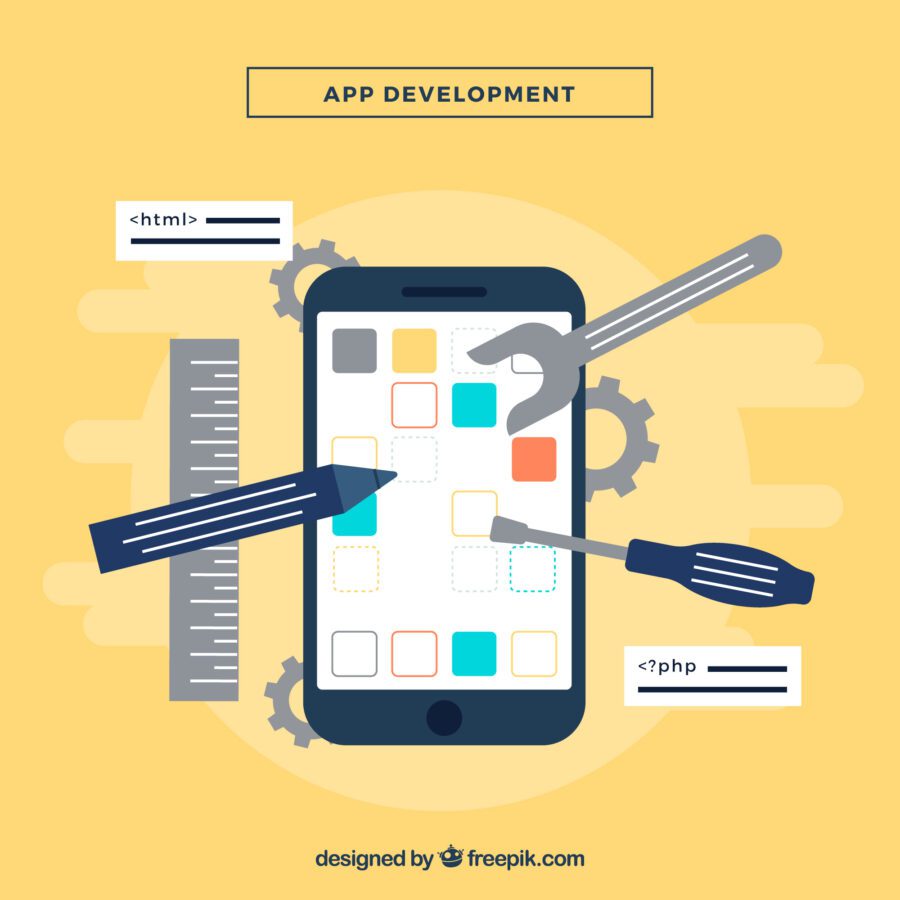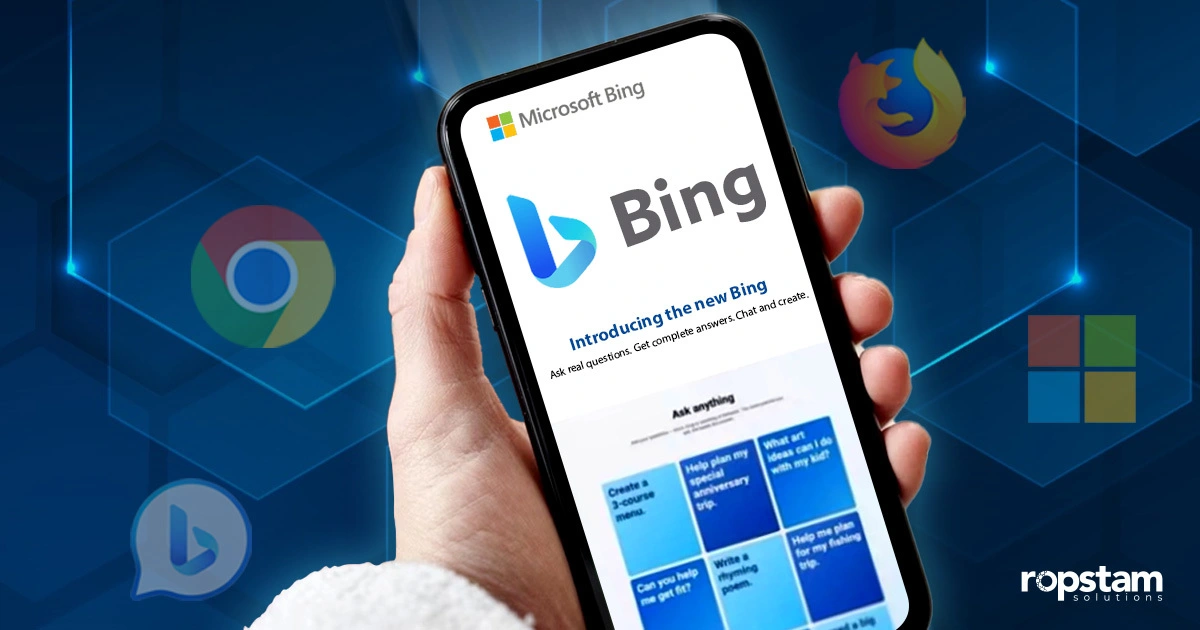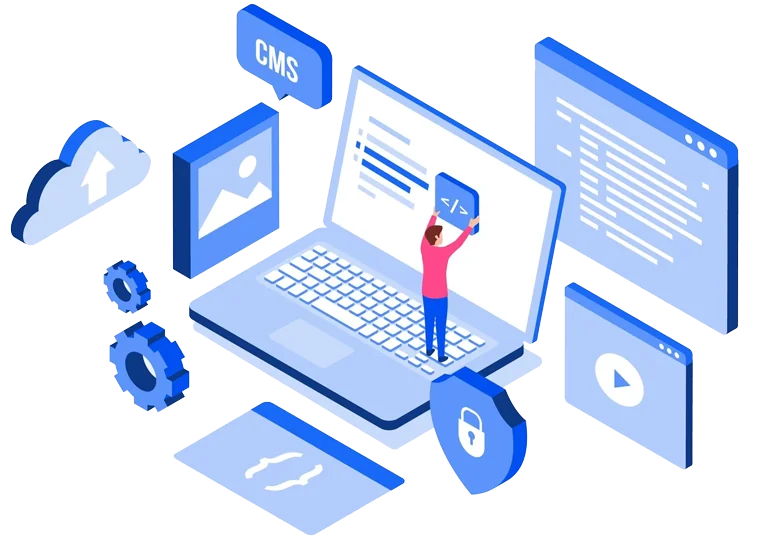In today’s digital age, mobile apps have become an indispensable part of our daily lives. From entertainment and social networking to productivity and health tracking, there’s an app for nearly every aspect of modern living.
As the demand for innovative and user-friendly apps continues to soar, developers, project managers, and companies face a crucial decision: should they create native apps tailored to specific platforms, or opt for cross-platform solutions that work across multiple operating systems?
In this blog post, we’ll underline the details of native and cross-platform app development, comprehensively comparing both approaches. Whether you’re a business owner contemplating your next app project or just a tech enthusiast, this article will provide valuable insights for you.
Native vs. Cross-Platform Development – Detailed Comparison
Let’s understand the key differences between native and cross-platform app development and the tools that are used in both methodologies:
What is a Native Mobile App?
These are the apps developed for a particular operating system, i.e., Android, or iOS. Native mobile applications are different from apps made by using other development technologies. When you know in advance the type of operating system and platform you are targeting, native app development languages are preferred.
For Android, Java and Kotlin are the two most commonly used technologies. On the other end of the spectrum, iOS apps are largely developed using Objective-C or Swift.
Examples of Native App Development Languages
- Java
- Kotlin
- Swift
Pros
Here are the advantages of using Native apps:
- Since native platform applications are developed keeping the requirements of a specific operating system in mind, they are much faster than cross-platform apps.
- Apps built using native tools follow specific UI standards and are much more user-friendly.
- Programmatically, such applications can be developed more securely since native development tools give special attention to security principles.
- It’s easier for businesses to target their audience with native android applications since App Store and Google Play Store give higher rankings to apps with better UI/UX
Cons
Following are some of the drawbacks of native platform:
- Since the development cycle is longer and more complicated, developing native apps is more expensive.
- Updating and maintaining these apps is way more complicated since different codebases are used to build apps for android and IOS.
- Native apps require a lot more time to be released, meaning the client must wait longer for the final product.

What is a Cross-Platform Mobile App?
If you want a solution that works seamlessly for several platforms and operating systems, cross-platform app development is the best option for you. Developers only have to maintain a single codebase to release applications suitable for several platforms. Cross-Platform apps can be released across App Store and Google Play Store immediately without any additional piece of code.
Examples of Cross-Platform Development Frameworks
- Flutter
- React Native
- Xamarin
Pros
Here are the pros of cross-platform applications:
- Cross-Platform apps use a single sharable code which significantly reduces the cost of development.
- Such apps have a native feeling which makes the users believe they are interacting with native apps.
- As compared to native apps, cross-platform applications are developed in a shorter period of time.
Cons
Following are some of the drawbacks of cross-platform apps:
- A hybrid development tool can never provide all the intricate functionalities available in native apps.
- In contrast to the smooth experience offered by natively built apps, hybrid apps have glitches, and the loading time is slower.
- There is more likelihood of formatting issues since the application is made available on a host of platforms.
How to Choose Between Native and Cross-Platform Development – Factor-wise Differentiation
Consider the following things when choosing between cross platform and native development for mobile applications:
Performance
Native development languages like Java, Swift, and Kotlin offer better performance as they are specifically designed for their respective platforms. Cross-platform languages like React Native and Flutter may have slightly lower performance due to the additional abstraction layer.
User Experience
Native development allows for a more seamless and native user experience, as it leverages platform-specific UI components. Cross-platform development can sometimes result in a less polished user interface due to the need for abstraction and compatibility across multiple platforms.
Development Time
Cross-platform development frameworks like React Native and Flutter can significantly reduce development time by allowing code reuse across platforms. Native development, on the other hand, requires separate codebases for each platform, potentially increasing development time.
Access to Native APIs
Native development languages have direct access to all platform-specific APIs and features, allowing developers to leverage the full potential of the underlying platform. Cross-platform frameworks provide access to most common APIs but may require additional workarounds or plugins for accessing certain platform-specific features.
Code Maintenance
With cross-platform development, code maintenance is streamlined as changes can be made in a single codebase. Native development requires separate codebases for each platform, potentially increasing the maintenance effort.
Community and Ecosystem
Native development languages have well-established communities and extensive ecosystems, providing developers with a wealth of resources, libraries, and tools. Cross-platform development frameworks are rapidly growing their communities and ecosystems, but they may still have a more limited range of resources compared to native languages.
Platform-Specific Customization
Native development allows for deeper customization and fine-tuning of the app’s behavior and appearance on each platform. Cross-platform development focuses on achieving a consistent user experience across platforms, limiting the ability for platform-specific customization.
Platform Support
Native development languages are supported directly by their respective platforms (e.g., iOS and Android), ensuring timely updates and compatibility. Cross-platform frameworks rely on their own development teams to provide updates and ensure compatibility with the latest platform versions.
Developer Skillset
Native development requires expertise in platform-specific languages and frameworks, such as Java, Swift, or Kotlin. Cross-platform development allows developers to work with a single codebase using languages like JavaScript (React Native) or Dart (Flutter), potentially widening the pool of available developers.
App Distribution
Native apps are distributed through platform-specific app stores (App Store, Google Play), leveraging their established user base and discoverability. Cross-platform apps can also be distributed through app stores but may require additional steps or considerations due to the use of a cross-platform framework.
Native vs Cross-Platform Development: Factor-Wise Analysis
Here is a detailed analysis of both native and cross-platform development to help you make the right decision:
- Development Time
- Budget
- Responsiveness
- Access to Native Features
- Animations
- Marketing
1. Development Time:
Native development typically requires more time, as separate codebases must be created for iOS and Android. Each platform demands specific expertise and resources. Cross-platform development, conversely, allows for faster deployment with a single codebase serving multiple platforms. This time-saving aspect can be crucial for businesses aiming to quickly establish a presence on both major mobile operating systems.
Winner: Cross-Platform Apps
2. Budget:
Native app development often comes with a higher price tag due to the need for platform-specific developers and longer development cycles. It’s an investment in quality and performance.
Cross-platform development, on the other hand, is generally more cost-effective, allowing businesses to stretch their budget further. This approach can be particularly appealing for startups or companies with limited resources, enabling them to reach a wider audience with a single development effort.
Winner: Cross-Platform Apps
3. Responsiveness:
When it comes to smooth performance across devices of varying screen sizes, native apps typically offer superior responsiveness, as they’re optimized for specific platforms and can directly access device hardware. What this means is smoother animations and faster load times.
Cross-platform apps while improving may experience slight performance lags due to the additional abstraction layer. However, for many applications, this difference is negligible, and cross-platform frameworks continue to narrow the gap in responsiveness.
Winner: Native Apps
4. Access to Native Features:
Native development provides unrestricted access to platform-specific features and APIs, allowing for deep integration with device capabilities. This can be crucial for apps requiring advanced functionalities.
Cross-platform frameworks have made significant strides in bridging this gap, but it goes without saying that some advanced or platform-exclusive features may still be challenging to implement. This is why developers must weigh the importance of these features against the benefits of cross-platform efficiency.
Winner: Native Apps
5. Animations:
To claim that native app development supports more advanced and sophisticated animations would not be an embellishment. This is because native apps excel in delivering smooth, complex animations that align perfectly with platform-specific design guidelines. The outcome is a polished, interactive user experience that feels natural on the device.
On the other end of the spectrum, while cross-platform solutions have improved significantly in this area but may still face challenges in replicating the fluidity of native animations. The choice between native and cross-platform mobile app development depends on how central sophisticated animations are to your app’s user experience.
Winner: Native Apps
6. Marketing:
Both native and cross-platform applications have different approaches to online promotion. Native apps often have an edge in app store optimization and visibility, as they can fully utilize platform-specific features and design guidelines. Better rankings and optimized featured placements are the final results.
Conversely, cross-platform apps may face challenges in modifying their app store presence for each platform. However, the ability to launch on multiple platforms concurrently can create broader marketing opportunities and potentially faster user acquisition.
Winner: Native Apps
When to choose Native app development?
Here are key scenarios where opting for native development makes the most sense:
- Performance-critical applications: If your app requires high-speed processing, complex calculations, or intensive graphics rendering, native development offers the best performance optimization. Games, video editing apps, or augmented reality applications often benefit from native development’s ability to directly access device hardware.
- Platform-specific features: When your app needs to utilize unique capabilities of iOS or Android, such as Apple’s Face ID or Android’s material design components, native development provides unrestricted access to these features.
- Complex user interfaces: For apps requiring complex animations, custom interactions, or a highly polished look and feel that aligns perfectly with platform guidelines, native development offers the most control and fluidity.
- Long-term scalability: If you anticipate your app growing significantly in complexity over time, native development provides a solid foundation for expansion without compromising on performance or user experience.
- Strict security requirements: Applications handling sensitive data, such as banking or healthcare apps, often benefit from the enhanced security capabilities offered by native development.
- App store optimization: When visibility in app stores is crucial for your marketing strategy, native apps often have an advantage in search rankings and featured placements.
When to choose Cross-Platform app development?
Want to go with cross-platform app development? Here are some of the use cases when developing cross-platform applications should be your preferred choice:
- Limited budget and resources: If you’re a startup or small business with financial constraints, cross-platform development allows you to create apps for both iOS and Android with a single codebase.
- Faster time-to-market: When you need to launch your app quickly on multiple platforms, cross-platform development can dramatically speed up the process, allowing you to reach both iOS and Android users simultaneously.
- MVP testing: For businesses looking to test their app idea or launch a minimum viable product (MVP), cross-platform development offers a cost-effective way to gauge market
- Uniform brand experience: If maintaining a consistent look and feel across all platforms is crucial for your brand, choose cross-platform development as it ensures uniformity in user interface and experience.
- Frequent updates: Apps that require regular updates and maintenance can benefit from cross-platform development, as changes only need to be implemented once for all platforms, saving time and reducing the chance of platform-specific bugs.
- Moderate performance requirements: For apps that don’t require intensive processing or complex animations, the slight performance difference between native and cross-platform apps is often negligible.
- Wide audience reach: In simple words when your primary goal is to reach as many users as possible across different devices and platforms, cross-platform development allows you to cast a wider net with a single development effort.
Why Choose Ropstam Solutions for Mobile App Development Services?
Just like there is no silver bullet that solves all problems, no app development framework is suitable for each project. If you want quick delivery and a single codebase to release the application across different platforms, a hybrid development language is the best option. Choose a native tool if you have enough resources and want to target a specific operating system.
We at Ropstam Solutions provide both native and hybrid app development services. Our mobile app development team consists of talented Flutter and React Native developers. If you want to avail our services, contact us now!














